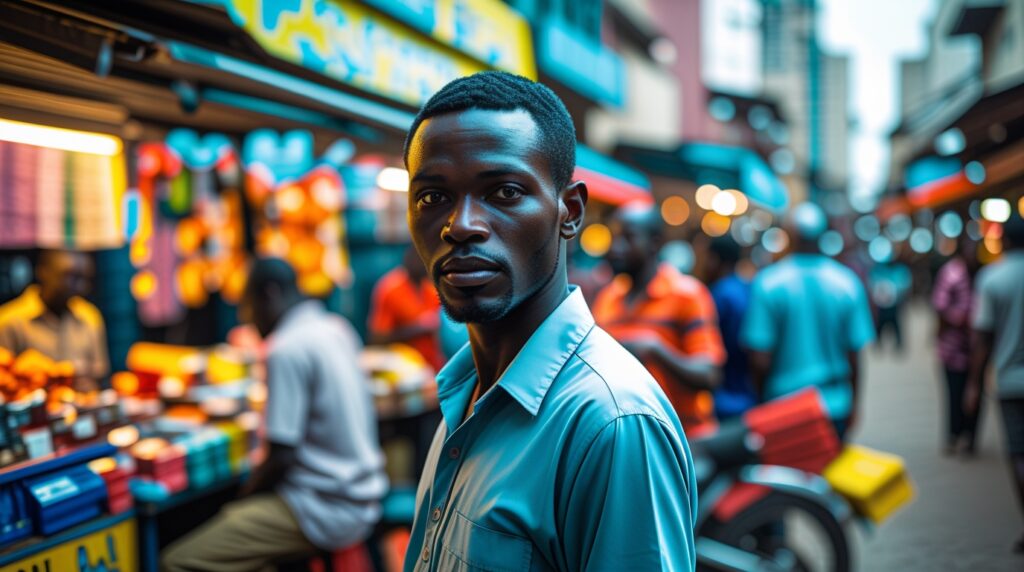From Hustle to Empire: The Business of African Street Cred

Intro: The Power of the Hustle
Walk into any city in Africa, from Lagos to Johannesburg to Nairobi, and you’ll hear it everywhere—“We dey hustle,” “Soft life,” “Boss up,” “No gree for anybody.” These aren’t just catchphrases; they’re a way of life. Hustling isn’t a side gig—it’s the economy. And the world is watching.
From the music charts to luxury fashion houses, the “African hustle” is being rebranded as ambition, reinvention, and resilience. International brands use it to sell sneakers, rappers drop it in their lyrics, and tech billionaires romanticize it in TED Talks. But beneath the hype, one question lingers: If Africa’s hustle is shaping global culture, why aren’t African hustlers reaping the rewards?
The answer? The world loves the aesthetic of the struggle—but it doesn’t pay the originators.
The Hustle Economy: How Street Culture Became a Global Business Model
For decades, Western business schools have taught “grit” and “entrepreneurial spirit” as frameworks for success. But in Africa, these aren’t theories; they’re survival tactics. Necessity is the mother of innovation, and in Africa, necessity breeds entire industries.
Take Jumia, the e-commerce giant founded in Nigeria. It didn’t follow the Amazon playbook—it built a logistics network from scratch in a region where street vendors, not warehouses, were the backbone of retail. Today, it’s valued at over $500 million.
Or look at Betway and SportPesa, betting platforms that turned Africa’s obsession with football into a billion-dollar industry by catering to the everyday bettor—the one staking their last 500 Naira on a Manchester United win.
Then there’s the Amapiano music movement. Born in South African townships, Amapiano wasn’t just a genre; it was a hustle. Producers sold beats on WhatsApp, DJs played exclusive tracks at underground parties, and social media fueled the fire. No labels. No big investors. Just raw street distribution. Fast forward to 2024, and Amapiano is on Coachella stages, in European clubs, and dominating Spotify charts—yet many of its originators still struggle for financial recognition.
The pattern is clear: Africa’s hustle economy keeps creating billion-dollar industries, but control slips away when global investors step in.
The Monetization Trap: When the World Profits Off the Struggle
There’s a fine line between admiration and appropriation, and global brands have mastered the art of blurring it. They don’t just take African culture—they repackage it for profit.
• Nike and Adidas have launched sneaker campaigns inspired by “hustle culture,” marketing African-style grit to global consumers. Yet, how many African designers get to lead these campaigns?
• Luxury brands like Dior and Louis Vuitton have released collections featuring African streetwear aesthetics—but who owns the IP?
• Tech giants and creative agencies champion “entrepreneurial resilience” in Africa, yet African creatives rarely get equity in the platforms they power.
Consider this: In 2024, African startups raised $3.2 billion in equity and debt funding, marking a 7% decrease from the previous year (Source: Partech, a global investment platform). Yet, despite the continent’s entrepreneurial drive, much of this capital continues to flow toward foreign-led ventures—just as in 2022, when 52% of venture capital in Kenya was invested in startups with entirely non-African founding teams. The world wants Africa’s hustle, but it wants it on its own terms.
This is where the game needs to change. Hustling can’t just be about working hard—it has to be about working smart. Ownership is the new flex.
The Future of Street Cred: From Consumers to Shareholders
The African hustle shouldn’t just be a story—it should be an industry with African stakeholders at the helm. The real power move isn’t just selling culture; it’s owning the platforms that distribute it.
• Platforms like Selar and Gumroad are already allowing African creatives to sell digital products directly to their audience—no middlemen.
• Blockchain and smart contracts are emerging as tools to ensure artists and entrepreneurs keep ownership of their intellectual property. Imagine an Amapiano DJ receiving lifetime royalties every time their beat is streamed.
• Localized venture funds are beginning to challenge foreign dominance in African investments. Initiatives like Future Africa and Ventures Platform are pushing for African-led funding of African innovations.
It’s time for a power shift. The global economy has already accepted that Africa’s hustle is valuable. The next step is making sure Africa owns its narrative, its assets, and its revenue streams.
The Hustler’s Dilemma
The world admires the African hustle, but admiration doesn’t pay the bills. What pays is ownership, equity, and control. It’s time to flip the game—from being the inspiration to being the industry leader.
Because in the end, the biggest flex isn’t just being the trendsetter. It’s getting paid for it.